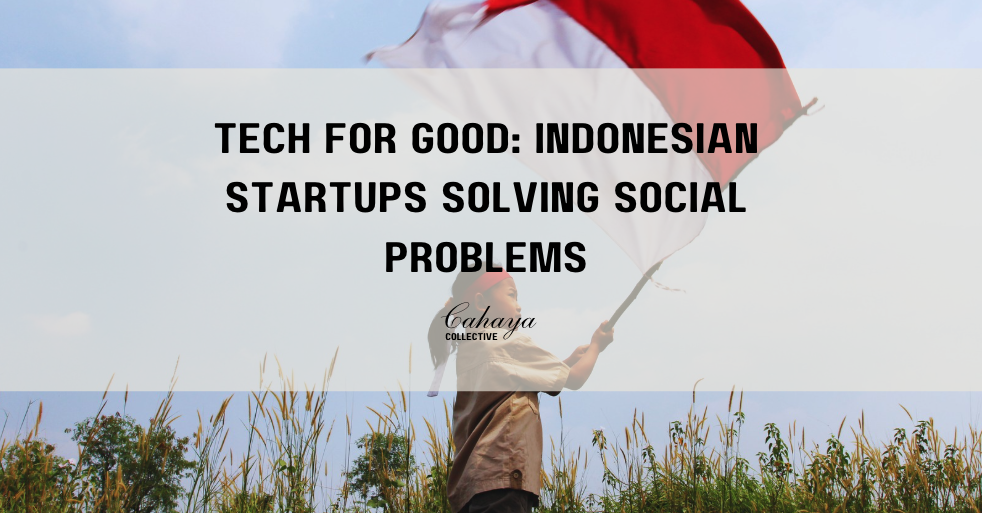
From Jakarta to Silicon Valley: Indonesian Startups Making a Global Impact
Indonesia’s tech scene is flourishing, with startups not only transforming the domestic market but also making significant inroads internationally. As Southeast Asia's largest economy, Indonesia has become a launchpad for innovation, giving rise to a new generation of startups that are capturing global attention. This blog post highlights Indonesian startups that have successfully expanded beyond borders and the strategies they employed to make a global impact.
1. Gojek: From Local Ride-Hailing to Global Tech Powerhouse
Global Expansion
Gojek started as a motorcycle ride-hailing service in Jakarta and has evolved into a multi-service platform offering everything from food delivery to digital payments. Its merger with Tokopedia to form GoTo Group marked a significant milestone in its expansion journey, solidifying its position as a leading tech conglomerate in Southeast Asia.
Strategies for Success
- Diversification of Services: Gojek expanded its offerings to include various services under one platform, which increased customer retention and market share.
- Strategic Partnerships: Collaborating with global players like Google and Tencent helped Gojek gain technical expertise and financial resources to expand.
- Localized Solutions: Gojek’s success in international markets like Vietnam and Singapore stems from its ability to adapt services to local needs while maintaining operational efficiency.
2. Traveloka: Revolutionising Travel in Asia
Global Expansion
Traveloka, initially an online flight booking platform, has grown into one of Asia’s largest travel tech companies, offering comprehensive services across flights, hotels, and lifestyle activities. It now operates in various Southeast Asian countries and has ventured into Australia.
Strategies for Success
- User-Centric Approach: Traveloka focused on creating a seamless user experience, which was crucial in building a loyal customer base.
- Market Penetration: Entering multiple markets simultaneously allowed Traveloka to establish a strong presence across Asia.
- Continuous Innovation: The company regularly updates its offerings, such as adding travel insurance and financing options, to stay ahead of the competition.
3. Bukalapak: Empowering Small Businesses Globally
Global Expansion
Bukalapak started as an e-commerce platform connecting small businesses to customers. It has since grown into a publicly listed company with aspirations to serve the global market, particularly focusing on empowering micro, small, and medium enterprises (MSMEs).
Strategies for Success
- Tech-Driven Solutions: Bukalapak invests heavily in AI and machine learning to optimize user experience and streamline logistics.
- Empowering MSMEs: By focusing on small businesses, Bukalapak has created a niche market that helps it compete globally.
- Scalable Model: Its scalable business model allows for easy replication in international markets, ensuring consistent growth.
4. Kopi Kenangan: Crafting a Global Coffee Culture
Global Expansion
Kopi Kenangan is Indonesia’s fastest-growing grab-and-go coffee chain. With its eye on international expansion, it has entered markets like Malaysia and is exploring further opportunities in the Middle East and Asia.
Strategies for Success
- Brand Storytelling: Kopi Kenangan’s narrative of blending traditional Indonesian coffee culture with modern convenience resonates well internationally.
- Tech Integration: The use of a proprietary app for seamless ordering and customer engagement has been a key differentiator.
- Expansion through Franchising: A franchise model has enabled rapid expansion while maintaining brand consistency across borders.
5. Ruangguru: Digital Learning for Global Audiences
Global Expansion
Ruangguru started as an online tutoring platform and has become a leader in edtech, not only in Indonesia but also in other Asian markets. It provides learning solutions for students and professionals, making education more accessible.
Strategies for Success
- Content Localization: By tailoring educational content to meet the standards and curricula of different countries, Ruangguru has ensured relevance and effectiveness.
- Collaborations with Governments: Partnering with educational institutions and governments has helped Ruangguru gain credibility and expand its user base.
- Innovative Learning Models: Incorporating gamification and interactive elements into its platform keeps users engaged, a crucial factor for its global success.
6. Xendit: Simplifying Payments Across Borders
Global Expansion
Xendit is a leading payment gateway in Indonesia, providing businesses with solutions to manage transactions efficiently. It has expanded its services to the Philippines and aims to become a key player in the regional fintech space.
Strategies for Success
- Customer-Centric Development: Xendit constantly evolves its offerings based on customer feedback, ensuring its services meet market demands.
- Robust Infrastructure: The company’s focus on building a scalable and secure payment infrastructure has facilitated its smooth entry into new markets.
- Strategic Funding: Securing investments from prominent global venture capital firms has provided Xendit with the resources needed for expansion and innovation.
Conclusion
Indonesia’s startups are no longer confined to their local markets. By adopting strategies such as diversification, customer-centric innovation, strategic partnerships, and localization, they have positioned themselves as formidable players on the global stage. As these startups continue to expand and influence various industries worldwide, Indonesia’s role as a tech powerhouse will only grow stronger, contributing to the global economy and setting new benchmarks for success.


